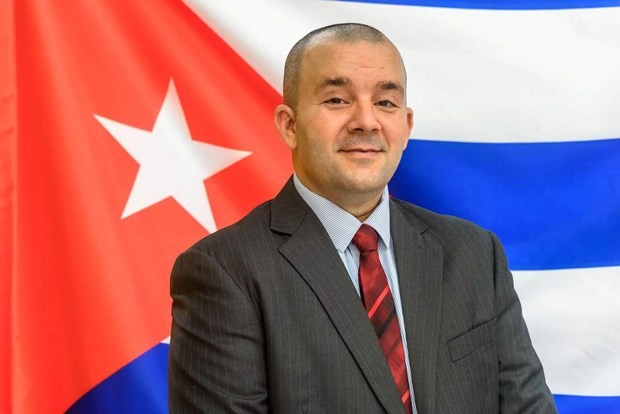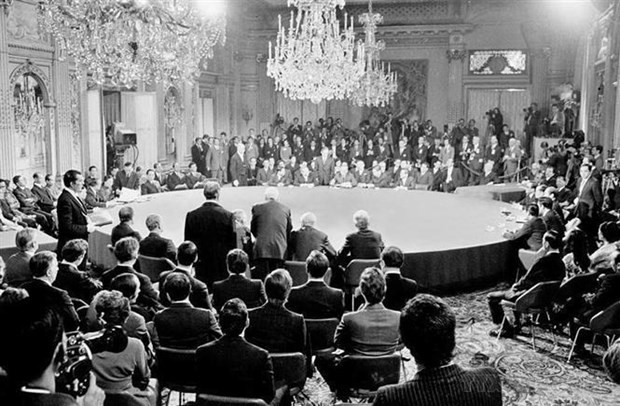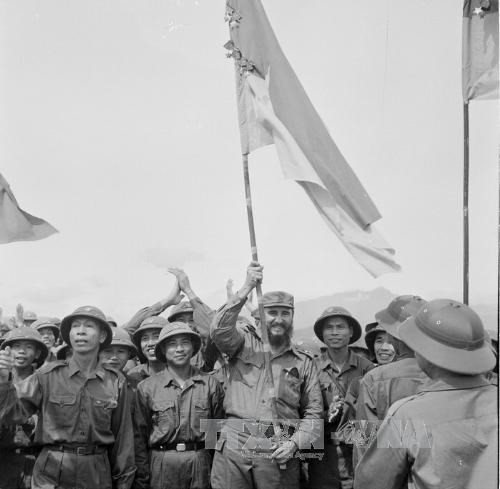
Cuba remains by Vietnam's side under all circumstances: 50th anniversary of Paris Peace Accords
Latest
 |
| Cuba remains by Vietnam's side under all circumstances: Counsellor at the Cuban Embassy Joi Puente (Photo: VNA) |
In an interview granted to the Vietnamese media on the occasion of the 50th anniversary of the Paris Agreement on Ending the War and Restoring Peace in Vietnam, Paris Peace Accords, (January 27, 1973 - 2023), Counsellor Joi Puente said Cuba always stood by Vietnam's side during the struggle for national liberation.
The signing of the accord marked the glorious victory won by the Vietnamese people after the 19-year struggle on political, military and diplomatic fronts, especially diplomacy, he said.
The moves both on the battlefield and at the negotiating table were intended to force the US to put an end to the war and commit to respecting Vietnam’s sovereignty, independence, reunification and territorial integrity, the Counsellor noted.
The victory was thanks to the extraordinary efforts, combat readiness, and the sacrifice of the Vietnamese army and people in the resistance war under the leadership of the Communist Party of Vietnam, he explained, noting that it was the Party’s sound leadership and resolve that led the Vietnamese people to various victories.
He also praised the ingenuity in the tactics employed by the Party, which brought to the great victory in the Vietnamese diplomatic sector, creating a premise for the resounding victory in April 1975 – the liberation of South Vietnam and national reunification.
Counsellor Joi described the agreement as a great source of encouragement for leftist movements as well as national liberation movements of peace-loving forces worldwide.
 |
| The signing of the accord marked the glorious victory won by the Vietnamese people after the 19-year struggle on political, military and diplomatic fronts, especially diplomacy. (Photo: VNA) |
Recalling the establishment of the diplomatic ties between Vietnam and Cuba on December 2, 1960, he emphasised that Cuba became the first country in the western hemisphere to establish full diplomatic relations with Vietnam.
On March 4, 1969, Cuba was also the first to recognise the Provisional Revolutionary Government of South Vietnam and the only to open an embassy in the liberated zone.
Cuban leader Fidel Castro's saying “For Vietnam, Cuba is willing to shed its blood” has been seen as a symbol of the Cuban people’s readiness to offer sacrifice to Vietnam during the struggle.
Fidel also assigned heroine of Moncada Melba Hernandez to popularise the Vietnamese people’s just struggle against the US, as well as anti-war movements, the Counsellor said, adding that Melba established the Cuban Committee of Solidarity with Southern Vietnam in 1963, now the friendship association between the two countries.
The Committee created a worldwide united movement in support of the Vietnamese people's anti-US struggle, he added.
The special and close ties between the Vietnamese and Cuban peoples have been carried forward, he said, stressing that both nations know that they have comrades and brothers from the other side of the hemisphere, who always support them unconditionally.
At the multilateral level, Cuba also called on members of the Non-Aligned Movement (NAM) to issue statements opposing the US’s invasion of Vietnam and backing Vietnam’s viewpoints in the Paris Agreement.
 |
| Cuba remains by Vietnam's side under all circumstances: 50th anniversary of Paris Peace Accords |
Between 1965 and 1975, Fidel delivered up to 66 speeches regarding the war, with 19 in 1972 alone, when the war got fiercer, denouncing the US’s escalating military policy and affirming his unconditional support for Vietnam’s just struggle for national liberation.
Fidel was also the first and only foreign head of state to visit the 17the parallel liberated zone in Vietnam in September 1973. He waved the flag of the National Liberation Front of South Vietnam, shouting loudly: “Vietnamese comrades, plant this flag of invincibility in Saigon!”
His presence and saying served as a source of encouragement for Vietnamese people during their struggle for national liberation, the Counsellor noted.
The cohesion of the noble revolutionary ideals and the struggle for independence, freedom and national liberation created mutual sympathy and understanding between the two peoples and the friendship that has been tested over the past more than six decades.









